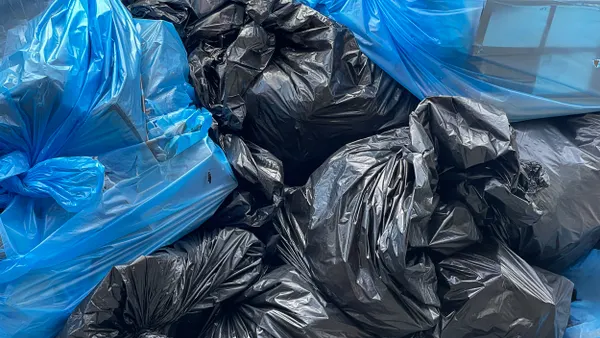Dive Brief:
- A new report from the U.S. Department of Agriculture (USDA) says that the biobased products industry created 4.2 million jobs and contributed $393 billion to the economy in 2014, as reported by Environmental Leader.
- The USDA defines this as including biorefining, biobased chemicals, enzymes, bioplastic bottles and packaging, forest products and textiles. The packaging sector was responsible for $11.4 million in "direct value added."
- According to the report, bioplastic bottles and packaging accounted for nearly 138,000 barrels of oil in petroleum savings and between 65-80% in greenhouse gas emission reductions as compared to petroleum-based plastics.
Dive Insight:
While the bioplastic bottles and packaging sector may be small in comparison it's part of an overall industry that has has shown growth since the USDA began tracking it in 2013 and is projected to reach new levels by 2020.
"America has an appetite for everyday products-including plastic bottles, textiles, cleaning supplies and more made from renewable sources, and that demand is fueling millions of jobs, bringing manufacturing back to our rural communities, and reducing our nation's carbon footprint," said Agriculture Secretary Tom Vilsack in a press release.
This demand has spurred many biobased packaging ideas and the USDA has been doing research on products such as edible packaging film made from milk protein. In a surprising move, France has even moved to ban the use of single-use plastic cups, dishes and cutlery by 2020. While popular, these products can also be difficult for the waste industry to process and recycling compatibility will be a key area to watch in this sector.











